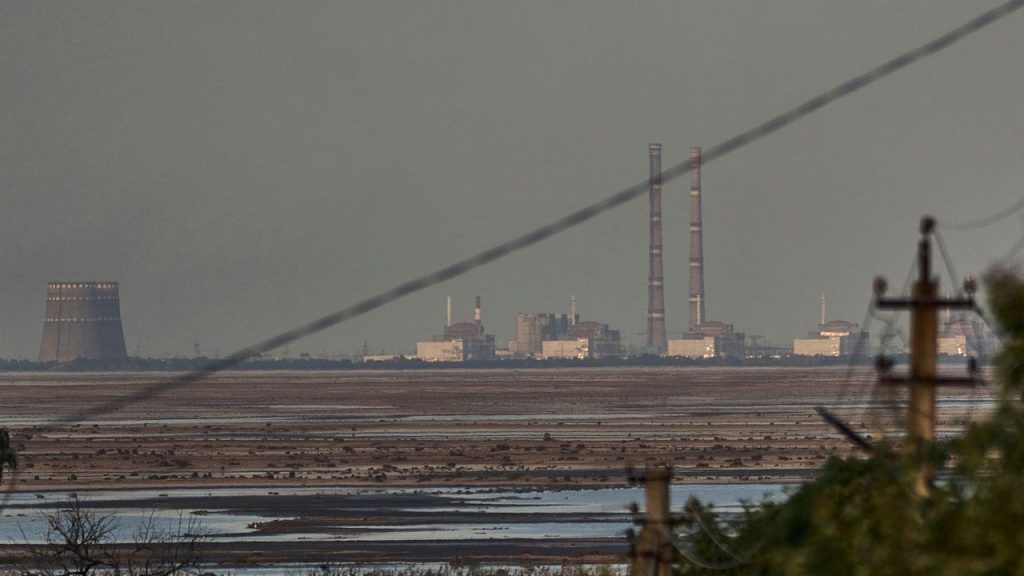A senior Ukrainian official has denied Russian accusations that Ukraine’s army fired exploding drones at the Zaporizhzhia Nuclear Power Plant, which has been occupied and run by Russian forces in southern Ukraine for more than two years. Andrii Yusov, the spokesperson for Ukraine’s military intelligence agency, stated that there was no such attack, claiming that Russian forces fabricate strikes on the plant. The plant has been caught in the crossfire since Russia’s invasion of Ukraine in February 2022, with the International Atomic Energy Agency expressing concern about potential nuclear disasters.
The Zaporizhzhia Nuclear Power Plant’s six reactors have been shut down for months, but it still requires power and qualified staff to operate crucial safety systems. The plant was targeted by drone strikes, confirmed by the U.N.’s atomic watchdog agency, causing one casualty. While there was superficial damage to the reactor dome, the IAEA did not observe any significant structural damage that compromised nuclear safety. However, the incident has the potential to undermine the integrity of the reactor’s containment system, according to the IAEA chief Rafael Mariano Grossi.
The IAEA has voiced alarm about the situation at the Zaporizhzhia plant, with concerns about the safety of the reactors given the ongoing conflict in the region. The plant has been a focal point of tension between Russia and Ukraine, with accusations and denials of attacks on the facility. The conflict has escalated further as Russia maintains its control over the plant, seeking to legitimize its occupation of Ukrainian territory and force international organizations to engage with Russian occupation officials.
The Institute for the Study of War, based in Washington, highlighted Russia’s attempts to use its physical control over the Zaporizhzhia Nuclear Power Plant to pressure international organizations like the IAEA to meet with Russian officials. This move is seen as an effort to legitimize Russia’s occupation of the plant and by extension, its occupation of sovereign Ukrainian land. The conflict at the plant reflects the broader geopolitical tensions between Russia and Ukraine, with concerns about potential risks to nuclear safety and the integrity of the facility.
The ongoing conflict at the Zaporizhzhia Nuclear Power Plant underscores the complex challenges faced by Ukraine and the international community in addressing the situation. The IAEA’s confirmation of drone strikes on the plant highlights the vulnerability of critical infrastructure in conflict zones and the need for enhanced safeguards to prevent potential nuclear disasters. The diplomatic and security implications of the situation at the plant have far-reaching consequences for regional stability and the broader conflict between Russia and Ukraine. Efforts to address the situation at the Zaporizhzhia plant will require coordinated international action and a commitment to upholding nuclear safety standards in the face of escalating conflict.
As the conflict in Ukraine continues, the situation at the Zaporizhzhia Nuclear Power Plant remains a critical concern for the international community. The ongoing attacks on the plant underscore the challenges faced by Ukraine in protecting its critical infrastructure and the importance of international support in addressing the risks to nuclear safety. The diplomatic efforts to address the situation at the plant must prioritize the safety and security of the facility and its personnel to prevent a potential nuclear catastrophe. The stakes are high, and the international community must work together to ensure the safe operation of the Zaporizhzhia plant and prevent further escalation of the conflict in the region.


